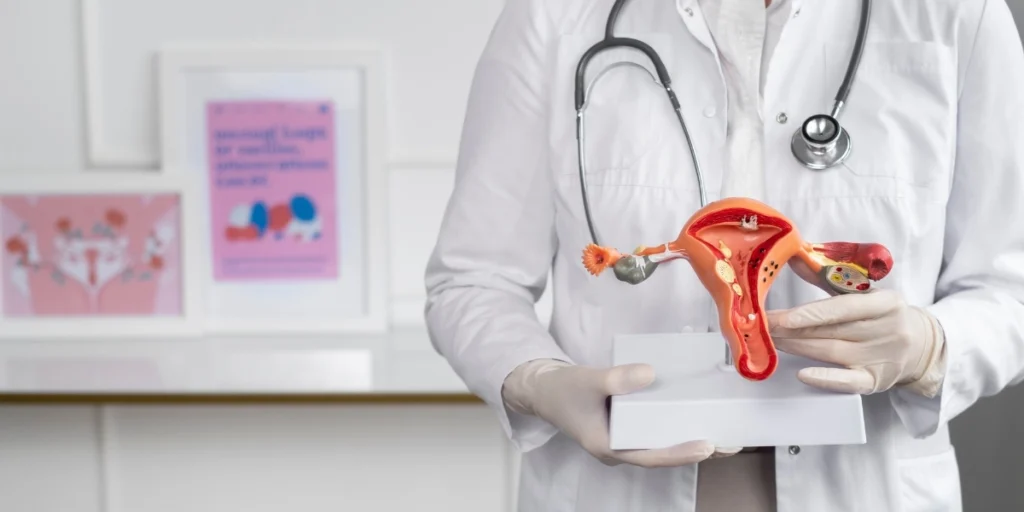
Cystectomy is a complex surgical procedure involving the removal of the bladder, often required for treating bladder cancer and other severe conditions. At Dr. I R Ravish’s clinic, we offer the best cystectomy surgery in India, utilizing advanced surgical urology techniques and state-of-the-art technology. Our dedicated team ensures comprehensive preoperative preparation, expert surgical care, and thorough postoperative support to achieve optimal patient outcomes and satisfaction. Trust us for professional, patient-centered urological care.
Overview
Preoperative Phase
Surgical Procedure
Postoperative Care
Why Choose Us
Cystectomy is a pivotal surgical procedure primarily performed to address bladder cancer. This operation involves the removal of the urinary bladder and may also include surrounding tissues and organs depending on the severity of the disease. Dr. I V Ravish, a distinguished urologist, is acclaimed as the Top Cystectomy Surgeon in Karnataka, delivering exceptional care and expertise in this complex surgery.
Cystectomy is indicated for several medical conditions, most notably bladder cancer. Other indications include:
Patients undergoing cystectomy are often those who have not responded well to other forms of treatment. The decision to proceed with cystectomy is made after a thorough evaluation by a specialist. As the Best Urology Doctor, Dr. I V Ravish meticulously assesses each case to ensure the most appropriate treatment plan is developed.
The preoperative evaluation is a critical phase in the cystectomy process. It includes a comprehensive assessment of the patient’s overall health and the extent of the disease. Essential components of the preoperative evaluation are:
Understanding the benefits and risks associated with cystectomy is crucial for patients.
Postoperative care is essential for a smooth recovery following cystectomy. This phase includes:
Patients under the supervision of Dr. I V Ravish, the Top Cystectomy Surgeon in Karnataka, benefit from a tailored postoperative care plan that promotes optimal recovery and long-term health.
The preoperative phase for a cystectomy is a critical stage that ensures the patient is thoroughly prepared for surgery. This phase involves multiple steps to optimize the patient’s condition, educate them about the procedure, and mitigate potential risks. Dr. I V Ravish, recognized as the Top Cystectomy Surgeon in Karnataka, meticulously manages this phase to ensure the best possible outcomes.
The first step in the preoperative phase is a comprehensive medical evaluation and imaging studies. This includes:
Educating the patient about the cystectomy procedure is vital. This includes explaining the surgical process, potential risks, and expected outcomes. Dr. I V Ravish, the Best Urology Doctor, personally engages with patients to ensure they fully understand the procedure. This helps alleviate anxiety and prepares them mentally for the surgery.
Optimizing the patient’s health before surgery is crucial for a successful outcome. This involves managing any existing medical conditions and ensuring the patient is in the best possible health. Dr. I V Ravish, the Top Cystectomy Surgeon in Karnataka, employs a thorough approach to preoperative optimization.
Preparing the patient psychologically is as important as the physical preparation. This involves counseling sessions to address any fears or anxieties about the surgery. Dr. I V Ravish’s approach ensures that patients feel supported and confident going into surgery.
Conducting necessary preoperative tests is a vital part of the preparation. These tests help identify any underlying issues that could affect the surgery or recovery.
The surgical procedure for a cystectomy is a multifaceted process that demands precision, expertise, and meticulous attention to detail. This section outlines the key stages involved in performing a cystectomy, highlighting the role of the Top Cystectomy Surgeon in Karnataka, Dr. I V Ravish. As a leading expert in Surgical Urology, Dr. Ravish ensures that each step is executed flawlessly to achieve optimal patient outcomes.
The procedure begins with the administration of anesthesia. General anesthesia is typically used to ensure the patient is unconscious and free of pain throughout the surgery. An anesthesiologist monitors the patient’s vital signs and adjusts anesthesia levels as needed to maintain stability and comfort.
Once anesthesia takes effect, the surgeon makes a carefully planned incision in the lower abdomen to access the bladder. The type and size of the incision depend on whether the cystectomy is partial or radical. A partial cystectomy involves removing only a portion of the bladder, while a radical cystectomy entails removing the entire bladder and, in some cases, nearby lymph nodes and organs.
In this critical phase, the surgeon carefully dissects the bladder tissue. For a radical cystectomy, this includes the removal of:
After bladder removal, creating a new pathway for urine is essential. This process, known as urinary diversion, involves constructing a conduit to allow urine to exit the body. There are several methods for urinary diversion, including:
Dr. Ravish’s expertise in Surgical Urology ensures that the most suitable method is selected based on the patient’s condition and lifestyle.
Once the bladder removal and urinary diversion are complete, the surgeon meticulously closes the abdominal incision. This step involves:
The patient is then transferred to the recovery area for close monitoring. Postoperative care focuses on managing pain, preventing complications, and supporting the patient’s recovery. Dr. I V Ravish, recognized as the Best Urology Doctor, provides comprehensive postoperative care to ensure a smooth and swift recovery.
Postoperative care is a critical phase following a cystectomy, focusing on ensuring a smooth recovery and preventing complications. The goal is to support the patient’s healing process, manage pain, and monitor for any signs of infection or other issues. Here, we will delve into the key aspects of postoperative care, highlighting the expertise of the Top Cystectomy Surgeon in Karnataka, and the critical role played by the Best Urology Doctor.
Effective postoperative care begins with close monitoring of the patient’s vital signs and overall condition. This includes regular checks on heart rate, blood pressure, respiratory rate, and temperature. Pain management is another crucial component, as it significantly impacts the patient’s comfort and recovery speed. The Top Cystectomy Surgeon in Karnataka employs advanced pain relief techniques, including:
Preventing infections is paramount in the postoperative phase. Stringent aseptic techniques and timely administration of antibiotics are essential to ward off potential infections. Here are key measures taken:
Encouraging early mobilization and rehabilitation is vital for a successful recovery. Early movement helps prevent complications such as blood clots and pneumonia. The rehabilitation process includes:
Proper nutrition plays a significant role in the healing process. Nutritional support involves:
The Top Cystectomy Surgeon in Karnataka emphasizes the importance of personalized nutritional plans to enhance recovery.
Continuous follow-up care is essential to monitor the patient’s progress and detect any late-onset complications. Regular check-ups and tests help ensure that the patient is healing as expected. Follow-up care includes:
The Best Urology Doctor ensures that each patient receives comprehensive follow-up care, fostering a successful and smooth recovery process.
Choosing Dr. I R Ravish for your cystectomy ensures that you are in the hands of the Top Cystectomy Surgeon in Karnataka. With years of experience and numerous successful surgeries, Dr. I R Ravish is recognized for his exceptional surgical skills and profound knowledge in the field of Surgical Urology. His expertise in performing complex cystectomies with precision and care sets him apart as the Best Urology Doctor.
Dr. I R Ravish employs the latest advancements in surgical techniques to ensure the best outcomes for his patients. Utilizing state-of-the-art technology and minimally invasive procedures, he reduces recovery time and minimizes the risk of complications. His proficiency in advanced Surgical Urology techniques ensures that patients receive the highest standard of care, making him the Top Cystectomy Surgeon in Karnataka.
We understand that every patient is unique, and so are their medical needs. Dr. I R Ravish provides personalized patient care, tailoring each treatment plan to the specific requirements of the patient. This individualized approach ensures that patients receive the most effective and appropriate care. As the Best Urology Doctor, Dr. I R Ravish is committed to offering compassionate and patient-centric care.
Our comprehensive care approach encompasses both preoperative and postoperative phases to ensure a seamless and successful recovery. During the preoperative phase, detailed evaluations and preparations are conducted to optimize the patient’s health. Postoperative care includes continuous monitoring, pain management, infection prevention, and rehabilitation.
Dr. I R Ravish’s dedication to comprehensive care is a testament to his standing as the Top Cystectomy Surgeon in Karnataka.
Patient education is a cornerstone of Dr. I R Ravish’s practice. He believes that informed patients make better decisions about their health. By providing thorough explanations of the procedure, potential risks, benefits, and expected outcomes, Dr. I R Ravish ensures that patients are well-informed and confident in their treatment choices. This commitment to education further establishes him as the Best Urology Doctor, trusted by patients for his transparency and communication.
Excellence in Surgical Urology is the hallmark of Dr. I R Ravish’s practice. His meticulous approach, combined with his use of cutting-edge technology, ensures that each cystectomy is performed with the utmost precision and care. Patients can trust in his expertise as the Top Cystectomy Surgeon in Karnataka, knowing they are receiving the highest quality of surgical care.
A cystectomy is a surgical procedure to remove the urinary bladder, primarily used to treat bladder cancer. It may also be necessary for other conditions such as severe bladder dysfunction or trauma. The procedure can be partial or radical, depending on the extent of the disease.
Robotic-assisted cystectomy offers several benefits, including smaller incisions, reduced pain, quicker recovery times, and improved precision during surgery. This advanced surgical technique allows for better outcomes and faster patient recovery.
The recovery period after a cystectomy varies depending on the type of surgery and the patient’s overall health. Generally, hospital stay lasts several days, followed by a few weeks of recovery at home. Full recovery can take several months, with regular follow-up visits to monitor progress.
Copyright © 2024 Best Urologist. All rights reserved.
© Designed and Developed By Cloudstar Digital
